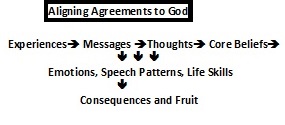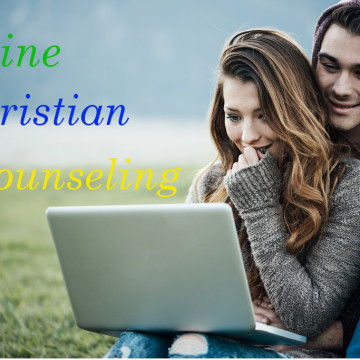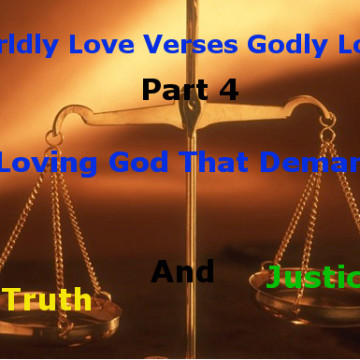What Is Codependency?

 You’ve probably heard the term “codependency,” but what is codependency? We first must know what codependency is and understand the characteristics in daily coping and life skills so that we can effectively identify if we are operating in these patterns. Most of us operate in some areas of our life with the traits of codependency. Many of us make it a coping skill pattern that controls our life and affects our relationships with ourselves, others, and God.
You’ve probably heard the term “codependency,” but what is codependency? We first must know what codependency is and understand the characteristics in daily coping and life skills so that we can effectively identify if we are operating in these patterns. Most of us operate in some areas of our life with the traits of codependency. Many of us make it a coping skill pattern that controls our life and affects our relationships with ourselves, others, and God.
In Codependent No More, Melody Beattie defines “a codependent person is one who let another person’s behavior affect him or her, and who is obsessed with controlling that person’s behavior.”
A codependent is a person who feeds into the behavior of an individual who is causing pain and stress into the whole unit. A unit can be in the family, workplace, school, social club, or church.
Codependency is an extensive set of coping skills developed as a means of self-preservation to survive in a dysfunctional environment. These coping skills are destructive to the codependent and the person they are enabling. We must learn how to say “no,” “I refuse,” to the individual who is blaming, manipulating, controlling, using and abusing them. We must establish boundaries and allow natural consequences in place of rescuing.
Do you wonder if you operate in codependency? Here is a checklist to help you identify codependent behaviors in your life.
Codependency Checklist
- Do you walk on eggshells around others?
- Do you avoid confrontation at all cost?
- Do you make decisions that you know to be wrong just to please others?
- Do you avoid disapproval or conflict?
- Do you make choices based on emotions?
- Do you tell lies to avoid upsetting someone?
- Do you avoid saying what you think, want, or feel if it is contrary to others?
- Do you get disgusted and angry with yourself for letting people run over you?
- Do you blame yourself for everything?
- Do you question all your feelings and decisions thinking your wrong or thinking that you made too much of it?
- Do try to protect others feelings?
- Do you make choices based on fear of rejection?
- Do you shield others from consequences?
- Do you try to save, fix or recue people?
- Do you often find yourself getting hurt?
- Do you feel taken advantage of and used?
- Is it hard for you to say no and set boundaries?
- Do you make choices based on guilt, control and manipulation?
- Do you spend your mental energy trying to solve someone else’s problems?
- Do your good feelings about yourself stem from being liked and approved of by others?
- Does your mental attention focus on pleasing and protecting?
- Do your interests, thoughts, feelings, values, and opinions take a back seat to others?
- Do you gain self esteem by pleasing others?
- Do you gain self esteem by protecting others and relieving their pain?
- Are your dreams and hopes linked to others?
All of the characteristics of codependency are contrary to the Word of God; however, many of us confuse, grace and forgiveness with a lack of boundaries, consequences for actions, and discernment. Codependency is a learned behavior pattern that is sin. When we have faulty core beliefs based on fear, faulty identity, lack of faith, self-protection, idolatry, and people pleasing, we think and operate in ways that are not in agreement to the Word of God. We must tear down the faulty core beliefs that drive our emotions, speech patterns, and life skills so that we can be transformed.
The chart below shows how we are to align our thought patterns and core beliefs to be in agreement with the Word of God so that our emotions, speech patterns and life skills reflect the character and nature of Christ. When we align our agreements with God, we experience good consequences and fruit. When we don’t align out agreements with God, we experience negative consequences and fruit.
 Codependency begins its development with experiences and messages you receive. Here are some examples:
Codependency begins its development with experiences and messages you receive. Here are some examples:
Grew up in troubled and dysfunctional families.
Families with drug, alcohol and other life controlling behaviors.
Families with rage, and all types of abuse.
Families with emotional disorders.
Repressed, uncommunicative families.
Family learned behaviors and generational inheritance.
Emotionally unavailable families.
Were not validated, child had no voice.
Had controlling authority figures.
Parents that were codependent and/or children of alcoholics or other life controlling behaviors.
Those experiences and messages produce thought patterns and faulty core beliefs such as the examples below:
I must please others to be a worthy person.
I must please others to be loved.
I must please others, or I will be abandoned and rejected.
I need to take what I can get and settle for being needed.
I will eventually be a victim of others.
Nothing good will happen, and I don’t deserve it.
I should settle for what I am getting because I will never get better.
I am on my own.
I should give to others, but others will never be there for me.
Everyone will leave me eventually.
I must save others to be valuable and feel good about myself.
I can’t say no
I am probably wrong and don’t see it clearly.
I must protect myself at all costs.
If someone get angry at me, I will be alone.
Those thoughts and faulty core beliefs then develop into emotions, speech patterns, and life skills. Here are just a few.
Operate in the thinking and life skills of 7 Words that are the foundation of sin (denial, minimization, justification, rationalization, blame, self-delusion and paranoia “victim mentality”)
Fear based on lack of trust and faith
No boundaries
No confrontational skills
People pleasers
Self-protective
Victim mentality
Faulty identity
Fear of rejection
Fear of abandonment
Care givers – enablers
Misplaced responsibility
Feel compelled
Feel and use guilt to manipulate and control
Self and Others are Idols
Emotions, speech patterns, and life skill then produce fruit such as:
Unhealthy relationships
Repetitive patterns of similar relationships
Misplaced responsibility
Stress
Anger
Anxiety
Depression
Loneliness
Needs never meet
Sabotage of future
Withdrawn
Hopeless
Emotional and physical illness
Become addicted to substance/event, possible eating disorders
No peace or joy
God created us to need each other, to be in relationship with Him and each other. As a society we are dependant on each other to survive. We depend on others who are close to us to accomplish goals in our lives, but when we are codependent we are enabling unacceptable behaviors in order to appease a person who is causing harm or disruption, in order to avoid being rejected.
Remember that poor choices do not define us. We are who God says that we are. Faulty life skills are not our identity. We may make bad choices, but that doesn’t make us bad people. God paid the ultimate price so that we can be free from the bondage of sin, but it starts with our choice and pursuit of God. Remember God wants us to identify any area of sin so He can transform us.
“And He said to me, “My grace is sufficient for you, for My strength is made perfect in weakness.” Therefore most gladly I will rather boast in my infirmities, that the power of Christ may rest upon me.” (2 Corinthians 12:9 NJKV)
If you find that you’re operating in codependency, don’t be ashamed. Instead, allow God to transform you and you can be a shining example of God’s powerful transformation.
Dr. Michele
Copyright © 2013 by Michele Fleming Ph.D.










Contact With Us